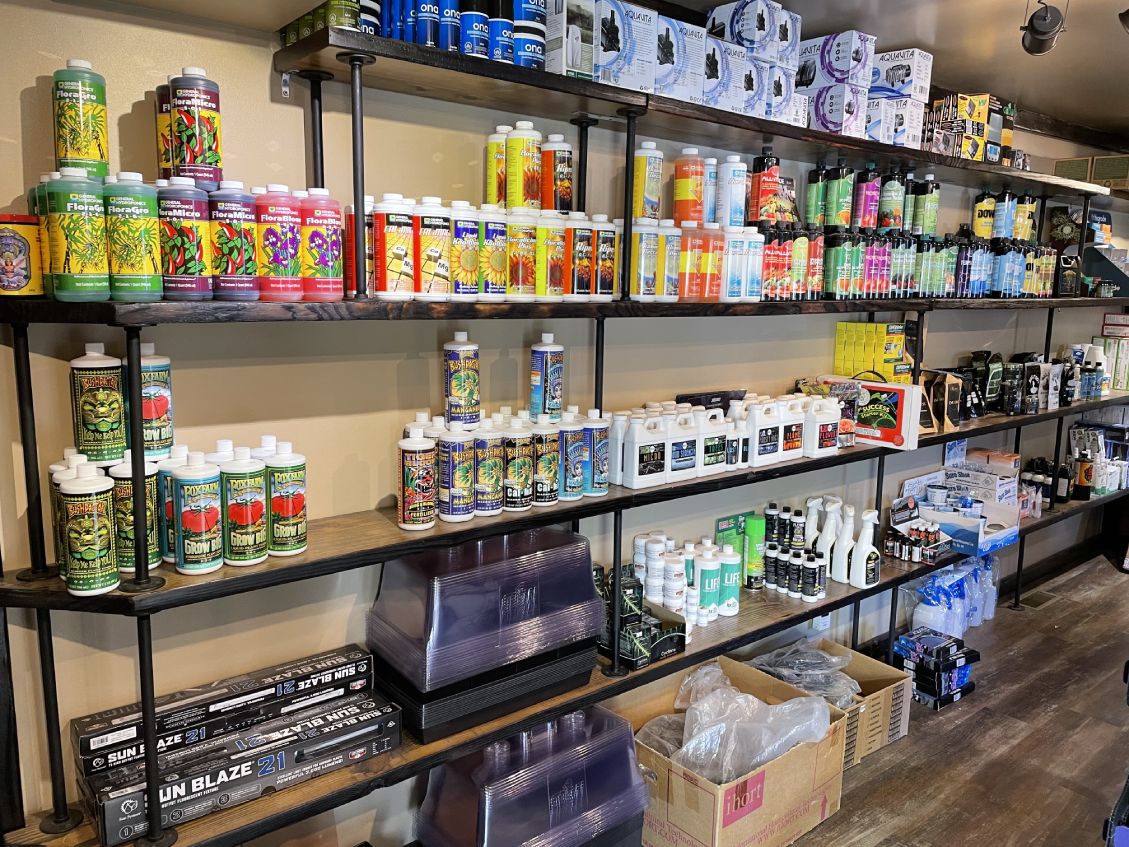Reinvent Your Garden with The Indoor Earthworm's Growing Strategy
Reinvent Your Garden with The Indoor Earthworm's Growing Strategy
Blog Article
Enhance Your Horticulture Skills With Hydroponics: Discovering Benefits
The technique of growing plants without soil may seem unconventional at first, yet its advantages are worth taking into consideration. As we dig right into the globe of hydroponic gardening, we uncover a huge selection of benefits that not only enhance plant development however likewise give one-of-a-kind opportunities for people looking to elevate their gardening abilities.
Advantages of Hydroponic Gardening
Hydroponic horticulture offers countless benefits as a result of its efficient use sources and exact control over plant growth problems. By supplying plants with direct access to nutrients liquified in water, hydroponic systems get rid of the demand for soil, minimizing water usage by as much as 90% contrasted to typical soil-based farming. This efficient nutrient distribution method likewise enables for faster plant development rates and higher returns, making hydroponic gardening an attractive alternative for taking full advantage of minimal room and resources.
Furthermore, the regulated atmosphere of hydroponic systems enables cultivators to optimize variables such as temperature level, moisture, and pH degrees, resulting in healthier plants with decreased risk of illness and pests. This specific control over expanding conditions not only advertises much faster and more regular plant development yet likewise allows for year-round cultivation no matter of outside climate condition.
Faster Plant Growth With Hydroponics
Using sophisticated nutrient distribution systems, hydroponic horticulture helps with sped up plant development rates contrasted to standard soil-based growing methods. In hydroponic systems, plants have straight access to important nutrients dissolved in water, permitting optimum absorption without the demand to expend energy establishing comprehensive origin systems to look for nutrients in the dirt. This efficient nutrient delivery system allows plants to reroute their power in the direction of durable vegetative growth and respected fruiting or blooming.
Moreover, the controlled setting in hydroponic arrangements makes sure that plants get the suitable problems for growth constantly. Elements such as temperature, ph, light, and moisture degrees can be diligently checked and changed to produce the optimal growing atmosphere for each plant selection. By removing the irregularity present in soil-based gardening, hydroponic systems supply plants with a stable and favorable setting that optimizes their growth potential.

Water Preservation Perks
Provided the reliable nutrient delivery system and regulated setting of hydroponic systems, one significant advantage worth exploring is the preservation of water resources. Hydroponic horticulture consumes to 90% less water contrasted to traditional soil-based horticulture approaches. This significant reduction is credited to the closed-loop system where water is recirculated and recycled, decreasing wastage. In standard dirt gardening, water is shed with dissipation, drainage, and percolation past the origin zone, causing ineffectiveness. Nonetheless, in hydroponics, the nutrient service is provided directly to the plant roots, making certain ideal water uptake and decreasing water loss.
Furthermore, hydroponic systems enable precise control over water use, with the capacity to readjust and check nutrient degrees based upon plant requirements. This targeted method avoids overwatering, a typical concern in soil-based gardening, more adding to water conservation efforts. By maximizing water effectiveness and reducing waste, hydroponic horticulture emerges as a eco-friendly and lasting alternative for people looking to reduce their water usage in horticulture practices.
Year-Round Plant Farming

By managing factors such as temperature level, light, and nutrient levels, hydroponic systems make it possible for plants to thrive regardless of outside weather conditions. This consistent setting permits for continuous plant growth and harvest, supplying a dependable supply of fresh fruit and vegetables also in the dead of winter.
Moreover, the capability to grow plants year-round in hydroponic systems opens up opportunities for farmers to experiment with a bigger selection of crops, increase their expanding periods, and increase total performance. This versatility and reliability make year-round plant growing in hydroponics a beneficial device for both enthusiasts and business growers looking to optimize their gardening initiatives.
Enhancing Gardening Skills Through Hydroponics
Establishing proficiency in hydroponics can empower garden enthusiasts with a much look at here now deeper understanding of plant farming methods and enhance their total horticulture skills. Hydroponic systems give a controlled atmosphere where gardeners can very closely monitor and change factors such as nutrient degrees, pH balance, and lights conditions to enhance plant growth. By grasping these elements, garden enthusiasts can fine-tune their skills and expertise, causing more effective harvests and healthier plants.
In addition, hydroponic gardening challenges conventional ideas of soil-based growing, urging garden enthusiasts to assume outside the box and explore innovative growing approaches. This experimentation can cultivate creativity and analytic skills, as garden enthusiasts discover to adjust and troubleshoot concerns unique to hydroponic systems. In addition, the efficiency of hydroponic configurations, such as upright gardens or nutrient movie methods, can show gardeners exactly how to take full advantage of space and resources why not try this out efficiently.
Verdict
Finally, hydroponic gardening provides many benefits such as faster plant development, water conservation, and year-round growing. By exploring the benefits of hydroponics, people can improve their gardening skills and attain successful plant development. Think about including hydroponic strategies right into your horticulture methods to take full advantage of effectiveness and efficiency in your yard.
As we dig right into the world of hydroponic gardening, more we uncover a plethora of advantages that not just improve plant growth but likewise provide unique chances for individuals looking to boost their gardening abilities.Using sophisticated nutrient shipment systems, hydroponic gardening facilitates sped up plant growth rates compared to standard soil-based growing approaches. By eliminating the irregularity present in soil-based horticulture, hydroponic systems supply plants with a favorable and secure setting that optimizes their growth possibility.
Enhancing the sustainability and productivity of gardening practices, year-round plant cultivation in hydroponic systems uses a reliable and consistent technique for growing a range of plants regardless of seasonal constraints. The Indoor Earthworm.In final thought, hydroponic horticulture provides numerous advantages such as faster plant development, water conservation, and year-round growing
Report this page